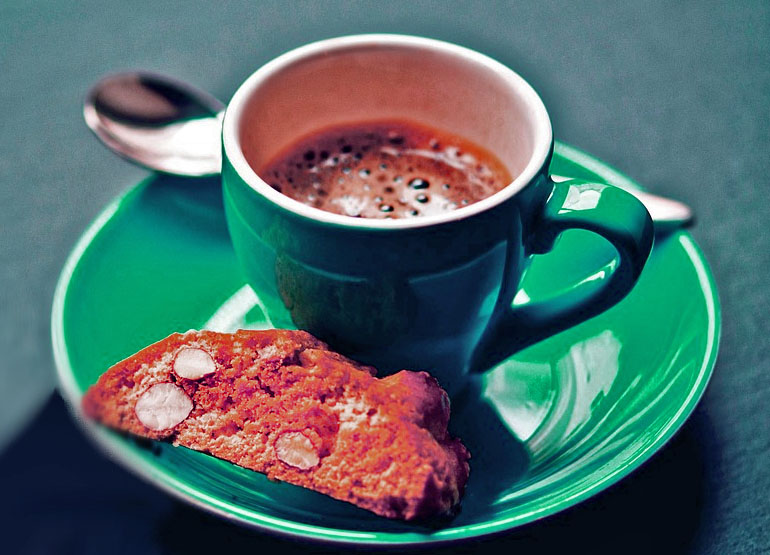The Magic of Coffee
A good cup of coffee can turn the worst day tolerable...
Classic Italian Espresso Caffè
Italian Espresso Caffè is a small cup of very strong coffee that Italians not only sip from tiny cups, it is also brewed in a special machine that forces boiling water through the dark roasted, finely ground coffee beans.
The classic espresso recipe is a single shot of espresso, approximately 1-1/2 oz. (40 ml). Espresso is best served in a pre-heated espresso cup.
NOTE: For stronger flavor, use 1-1/2 times the amount of espresso whether you are brewing your own or using instant espresso.
Variations:
Espresso Caffè is also used as the basis for other drinks like: caffè late, cappuccino, caffè macchiato, Espresso con Panna and many more.
Espresso con Panna: To prepare Espresso con Panna use single or double espresso shot and top with whipped cream.
Caffè Macchiato: To prepare Caffè Macchiato use a single shot of espresso and top with 1-2 tablespoons of frothed milk.
Macchiato Fiordilatte: To prepare Macchiato Fiordilatte use a single shot of espresso and top with 1-2 tablespoons of steamed heavy cream. Be careful not to use too much steam, you could alter the structure of the cream.
Espresso Dopio: To prepare Espresso Dopio (Double Espresso), just double the quantity of espresso to about 3 oz. for double the pleasure and serve in a pre-heated cappuccino cup.
RomWell Cookbook
Discover various delicious and useful recipes...Did You Know?
Good coffee, carefully roasted and properly brewed, produces a natural beverage that, for tonic effect, can not be surpassed, even by its rivals, tea and cocoa. Here is a drink that ninety-seven percent of individuals find harmless and wholesome, and without which life would be drab indeed—a pure, safe, and helpful stimulant compounded in nature's own laboratory, and one of the chief joys of life!
Trading upon the credulity of the hypochondriac and the caffein-sensitive, in recent years there has appeared in America and abroad a curious collection of so-called coffee substitutes. They are "neither fish nor flesh, nor good red herring." Most of them have been shown by official government analyses to be sadly deficient in food value—their only alleged virtue. One of our contemporary attackers of the national beverage bewails the fact that no palatable hot drink has been found to take the place of coffee. The reason is not hard to find. There can be no substitute for coffee. Dr. Harvey W. Wiley has ably summed up the matter by saying, "A substitute should be able to perform the functions of its principal. A substitute to a war must be able to fight. A bounty-jumper is not a substitute."

